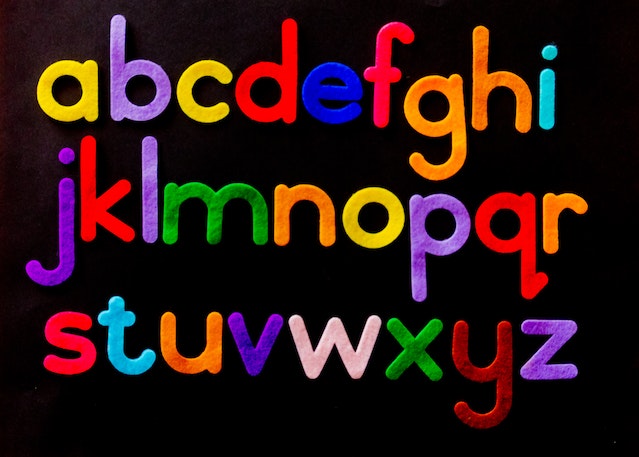CAN / COULD / BE ABLE TO
I Can Hear / I Could Hear Modals: Can / Could / Be Able To “Can”: “Can” is used in the following situations: Possibility or Permission: If something is possible or allowed. Ability: If we have the ability…
LINKING SENTENCES / BUT, HOWEVER, THOUGH, ALTHOUGH
But, however, though / Linking sentences In English, these are the phrases we use more in formal, that is, official speeches. They are also used in daily conversations to express personal opinions. We can use the phrases above…
Determiners
In this lesson, we will look at determiners in detail. Definite article : the Indefinite article : a, an Possessive adjectives : my, his , her , your Demonstratives : this, that, these, those Quantifiers : every, some,…
PASSIVE VOICE 2
Passive 2 As mentioned earlier, passive voice is used for actions and processes where the doer is not specified. It is also used in formal writings and news to emphasize the action rather than the subject. Note that…
MODALS / DEDUCTION AND SPECULATION LESSON 2
Modal Verbs in English In English, modal verbs are used to convey various meanings to the main verb. Could / May / Might: Used when the speaker is uncertain: That could be the right bus. – This might…
THE INFINITIVE (TO) AND GERUND (ING) / LESSON 3
Words that take both -ing and -to, but with a change in meaning Forget I forgot to turn off the computer. ( forget to turn off ) I forgot turning off the computer. ( forget a past…
EITHER , NEITHER, SO , TOO
Either, neither In English, we use connector adverbs like ‘neither’ and ‘either’ when we want to introduce another negative idea into the conversation. Neither We use ‘neither’ when talking about actions we haven’t done or don’t like: Alex…
POSSIBILITY, PROBABILITY, CERTAINTY
In English, there are several modal auxiliary verbs that are used to express different degrees of possibility, probability, and certainty. Here’s a breakdown of how these modals are used: 1. Possibility: May / May Not: Used to indicate…
BE / GET USED TO
Be/Get Used To If something is new and not strange to us, we use “used to.” I am Turkish but I live in Germany. When I came to Turkey last summer, I found it really difficult because the…
PRESENT SIMPLE
PRESENT TENSE / Simple Present / -er, -ar INTERMEDIATE GRAMMAR REFERENCE Present Tense Use: The simple present is used to describe a common action. In this usage, time expressions (time adverbs) are used, such as: Adverbs of Frequency…
GERUNDS (-ING) AND INFINITIVES (-TO)
GERUNDS (-ING) A gerund is a verb form used as a noun. It can function as the subject of a sentence or as an object. For example: Subject: Swimming in the pool is very exciting. (“Swim” becomes “swimming”…
INDIRECT SPEECH
Direct and Indirect Speech (Reported Speech) When we want to convey what someone else has said or expressed, we use two methods: Direct and Indirect Speech. For example, if John says, “I like swimming”: Direct Speech: “I like…
A DIFFERENT LOOK AT SO AND SUCH ; LESSON 2
SO: Before an Adjective (Before Adverb): Before an adjective, “so” adds emphasis. For example: “He is lazy” simply means he is lazy. “He is so lazy” means he is very lazy. Before an adverb, it emphasizes the degree….
PAST PERFECT / I HAD DONE – SHE HAD DONE
Past Perfect (Had + Past Participle) Past Perfect is used to express actions that happened before other past events. It is formed with “had” followed by the past participle of the verb. When two events occurred in the…
IRREGULAR VERBS AND PAST TENSE
Intermediate Irregular Verbs and Past Tense Expression As explained in the previous lessons, we use verbs in two categories when making sentences in Past tense in English 1.Regular verbs : It is made by bringing -e, ed and…
INTERMEDIATE FUTURE TENSE
Will and Going to Talking about the future Will / going to “will “ Actual future situations: The 2nd Winter Sports Olympics in Erzurum will begin next year in January. When making a forecast: I hope you…
SO / SUCH
He is so trendy! In English, we use the connectors ‘so’ and ‘such’ to specify a certain amount, much like ‘too’ and ‘enough.’ So Let’s note that ‘so’ is used with adjectives: He is so good that he…
COMPARISONS
COMPARISONS Like / as “like”: to express similarity (when describing similarities). He can write very fast like him. She looks like her mother. “As” (when describing a person’s role or function) He works as a manager for this…


















